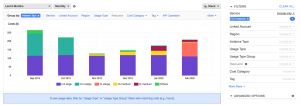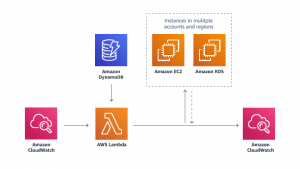One of the most difficult challenges in managing multiple cloud instances is understanding how to keep within a budget. This is something that affects most of our customers and affects us here at Axway. Here’s the reason.
Focus on tracking and optimizing
Nowadays, all companies are using at least one cloud platform. With the increasing number of services and features provided by cloud providers, it is easy to create a lot of resources that allow people to experiment, learn and be creative.
The downside is it’s more complicated to manage it correctly. That’s why it is important to implement and follow best practices (security, tagging, costs…). We will focus on tracking and optimizing costs on AWS in this post.
Managing several AWS accounts for presales is quite complicated in terms of tracking costs and consumption. Lucky for us, AWS has tools to help track and reduce costs. This affects all of us because the costs we are reducing come out of your budget.
If we do not keep costs down, you will use up your budget before you finish your project. How can you make sure you don’t exceed your budget? That’s the next question we will answer.
AWS tools: Tracking costs
The first tool you will need is AWS Budget. This service allows you to create different budgets with different metrics (period of time, budgeted amount…). It is important to set an alert using CloudWatch and Simple Notification Service so you will receive an email alert when you have passed your defined threshold. Basic but simple to set up.
The second tool is the Cost Explorer. You have a lot of information in the form of a dashboard where you can analyze by services, regions, tags, export report…. This service is essential for any administrator as it gives you all the information about any cost on your AWS account. It will be your best friend.

Cost optimization
In terms of optimizing cost, AWS gives you recommendations based on your usage of your resources in the Cost Explorer console. Also, there are “Savings Plans” and “Reservations” features but it requires commitment during a long period, it does not fit our usage of the demo environment.
In addition to these AWS tools, you can set up an auto-scheduler to turn-off/turn-on instances (EC2) and databases (RDS) at fixed hours based on your time zone. This auto-scheduler can be used on multiple accounts. It is based on AWS Lambda, DynamoDB and CloudWatch service.

What’s next?
All these tools are only efficient if all resources are well tagged. We are allocating costs based on tags. Tagging is not easy for us as we have multiple users and accounts. To remediate this, it’s possible to schedule a script that checks all resources on your account and gives us a report of all untagged resources. But that’s another story.
Read more about the Axway Cloud with AWS PrivateLink: Easy and Secure.

